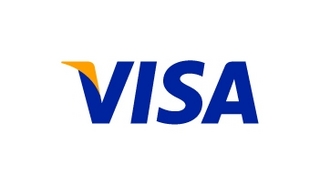Chatrooms used for sharing hints and tips in growing business of ID theft
Published:
26 July 2003 y., Saturday
Thieves are using chat rooms to sell stolen credit card details and advise others how to hack websites containing credit information, security experts have warned.
Groups using internet relay chat (IRC) are playing a growing role in online credit card fraud.
A report by the Honeynet Project, which monitors criminal activity on the internet, shows that online thieves are becoming increasingly sophisticated. The credit card details are not only used to purchase products but to clone the card owner's identity.
In order to monitor and record this activity, the Honeynet researchers set up computer systems, called 'honeynets' or 'honeypots', intended to be easy targets for hackers. The researchers then tracked the hackers to the IRC channels.
Dr Bill McCarty and his students at Azusa Pacific University monitored activities on more than a dozen IRC channels relating to credit card fraud after a hacker infiltrated one of their traps.
He warned that such criminal activity is not confined to the US. "We saw people from the UK in these rooms trading information," he told vnunet.com.
The software programs used in these rooms can systematically search out vulnerable websites containing credit information, determine which bank issued a card, harvest the three-digit card verification number and even let thieves determine the available credit card limit.
They can check a card number's validity and personal information about its owner.
In one IRC chat group a user was selling credit card numbers for 50 cents to $1 each, while another wanted lessons on cracking online sites containing credit card information.
But this is only the tip of the iceberg of the growing problem of identity theft, the cost of which runs into millions every year.
Over the past year in the US at least seven million people have fallen victim to identity theft of some sort, according to a survey by analyst Gartner.
A report from the UK Fraud Advisory Panel said that the number of identity thefts in the UK has grown from 27,270 in 2001 to 42,029 last year, costing victims an estimated £62.5m annually and the UK economy £1.3bn a year.
Šaltinis:
vnunet.com
Copying, publishing, announcing any information from the News.lt portal without written permission of News.lt editorial office is prohibited.
The most popular articles
Software company announced new structure_ of it_s business.
more »
 Wincor Nixdorf is enhancing its consulting portfolio for the banking business.
more »
Wincor Nixdorf is enhancing its consulting portfolio for the banking business.
more »
 Wincor Nixdorf is set to present its ProClassic Enterprise Cash Management software for effective and rational organization of end-to end cash management processes in banks at the Retail Delivery Show.
more »
Wincor Nixdorf is set to present its ProClassic Enterprise Cash Management software for effective and rational organization of end-to end cash management processes in banks at the Retail Delivery Show.
more »
 Yahoo said Jerry Yang will step down as chief executive as soon as the board finds a replacement.
more »
Yahoo said Jerry Yang will step down as chief executive as soon as the board finds a replacement.
more »
 Wincor Nixdorf AG has turned in the best year in its history.
more »
Wincor Nixdorf AG has turned in the best year in its history.
more »
 Visa Inc. is working with the Los Angeles transit authority to allow train, subway and bus riders to pay fares with Visa’s payWave-enabled contactless cards.
more »
Visa Inc. is working with the Los Angeles transit authority to allow train, subway and bus riders to pay fares with Visa’s payWave-enabled contactless cards.
more »
 Customers line up in New York City to be the first to buy Google's new G1 phone.
more »
Customers line up in New York City to be the first to buy Google's new G1 phone.
more »
 Children and teenagers are keen internet users - 12 to 15-year-olds spend at least three hours a day on screen - but are not always aware of the dangers: not just sites showing child pornography or violence but also the risk of bullying or grooming.
more »
Children and teenagers are keen internet users - 12 to 15-year-olds spend at least three hours a day on screen - but are not always aware of the dangers: not just sites showing child pornography or violence but also the risk of bullying or grooming.
more »
 A European Commission study found that devices left on stand-by throughout the European Union in 2005 consumed the same amount of electrical energy as a country the size of Greece or Portugal in 2008.
more »
A European Commission study found that devices left on stand-by throughout the European Union in 2005 consumed the same amount of electrical energy as a country the size of Greece or Portugal in 2008.
more »
 The European Commission has launched a new web portal called “Study in Europe” to promote the attractiveness of European Higher Education to students from other parts of the world.
more »
The European Commission has launched a new web portal called “Study in Europe” to promote the attractiveness of European Higher Education to students from other parts of the world.
more »
 With the increasing availability of the internet, children are being exposed more and more to illicit images and content.
more »
With the increasing availability of the internet, children are being exposed more and more to illicit images and content.
more »